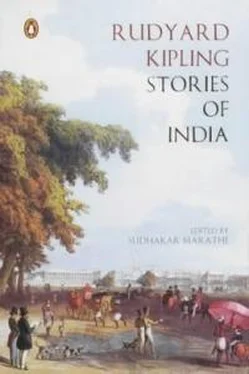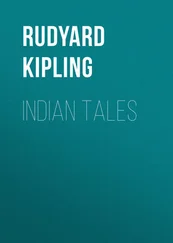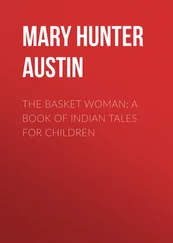Indian Tales
Rudyard Kipling
"The Finest Story in the World"
"Or ever the knightly years were gone
With the old world to the grave,
I was a king in Babylon
And you were a Christian slave,"
W.E. Henley
His name was Charlie Mears; he was the only son of his mother who was a widow, and he lived in the north of London, coming into the City every day to work in a bank. He was twenty years old and suffered from aspirations. I met him in a public billiard–saloon where the marker called him by his given name, and he called the marker "Bullseyes." Charlie explained, a little nervously, that he had only come to the place to look on, and since looking on at games of skill is not a cheap amusement for the young, I suggested that Charlie should go back to his mother.
That was our first step toward better acquaintance. He would call on me sometimes in the evenings instead of running about London with his fellow–clerks; and before long, speaking of himself as a young man must, he told me of his aspirations, which were all literary. He desired to make himself an undying name chiefly through verse, though he was not above sending stories of love and death to the drop–a–penny–in–the–slot journals. It was my fate to sit still while Charlie read me poems of many hundred lines, and bulky fragments of plays that would surely shake the world. My reward was his unreserved confidence, and the self–revelations and troubles of a young man are almost as holy as those of a maiden. Charlie had never fallen in love, but was anxious to do so on the first opportunity; he believed in all things good and all things honorable, but, at the same time, was curiously careful to let me see that he knew his way about the world as befitted a bank clerk on twenty–five shillings a week. He rhymed "dove" with "love" and "moon" with "June," and devoutly believed that they had never so been rhymed before. The long lame gaps in his plays he filled up with hasty words of apology and description and swept on, seeing all that he intended to do so clearly that he esteemed it already done, and turned to me for applause.
I fancy that his mother did not encourage his aspirations, and I know that his writing–table at home was the edge of his washstand. This he told me almost at the outset of our acquaintance; when he was ravaging my bookshelves, and a little before I was implored to speak the truth as to his chances of "writing something really great, you know." Maybe I encouraged him too much, for, one night, he called on me, his eyes flaming with excitement, and said breathlessly:
"Do you mind—can you let me stay here and write all this evening? I won't interrupt you, I won't really. There's no place for me to write in at my mother's."
"What's the trouble?" I said, knowing well what that trouble was.
"I've a notion in my head that would make the most splendid story that was ever written. Do let me write it out here. It's such a notion!"
There was no resisting the appeal. I set him a table; he hardly thanked me, but plunged into the work at once. For half an hour the pen scratched without stopping. Then Charlie sighed and tugged his hair. The scratching grew slower, there were more erasures, and at last ceased. The finest story in the world would not come forth.
"It looks such awful rot now," he said, mournfully. "And yet it seemed so good when I was thinking about it. What's wrong?"
I could not dishearten him by saying the truth. So I answered: "Perhaps you don't feel in the mood for writing."
"Yes I do—except when I look at this stuff. Ugh!"
"Read me what you've done," I said.
"He read, and it was wondrous bad, and he paused at all the specially turgid sentences, expecting a little approval; for he was proud of those sentences, as I knew he would be.
"It needs compression," I suggested, cautiously.
"I hate cutting my things down. I don't think you could alter a word here without spoiling the sense. It reads better aloud than when I was writing it."
"Charlie, you're suffering from an alarming disease afflicting a numerous class. Put the thing by, and tackle it again in a week."
"I want to do it at once. What do you think of it?"
"How can I judge from a half–written tale? Tell me the story as it lies in your head."
Charlie told, and in the telling there was everything that his ignorance had so carefully prevented from escaping into the written word. I looked at him, and wondering whether it were possible that he did not know the originality, the power of the notion that had come in his way? It was distinctly a Notion among notions. Men had been puffed up with pride by notions not a tithe as excellent and practicable. But Charlie babbled on serenely, interrupting the current of pure fancy with samples of horrible sentences that he purposed to use. I heard him out to the end. It would be folly to allow his idea to remain in his own inept hands, when I could do so much with it. Not all that could be done indeed; but, oh so much!
"What do you think?" he said, at last. "I fancy I shall call it 'The Story of a Ship.'"
"I think the idea's pretty good; but you won't be able to handle it for ever so long. Now I"―
"Would it be of any use to you? Would you care to take it? I should be proud," said Charlie, promptly.
There are few things sweeter in this world than the guileless, hot–headed, intemperate, open admiration of a junior. Even a woman in her blindest devotion does not fall into the gait of the man she adores, tilt her bonnet to the angle at which he wears his hat, or interlard her speech with his pet oaths. And Charlie did all these things. Still it was necessary to salve my conscience before I possessed myself of Charlie's thoughts.
"Let's make a bargain. I'll give you a fiver for the notion," I said.
Charlie became a bank–clerk at once.
"Oh, that's impossible. Between two pals, you know, if I may call you so, and speaking as a man of the world, I couldn't. Take the notion if it's any use to you. I've heaps more."
He had—none knew this better than I—but they were the notions of other men.
"Look at it as a matter of business—between men of the world," I returned. "Five pounds will buy you any number of poetry–books. Business is business, and you may be sure I shouldn't give that price unless"―
"Oh, if you put it that way," said Charlie, visibly moved by the thought of the books. The bargain was clinched with an agreement that he should at unstated intervals come to me with all the notions that he possessed, should have a table of his own to write at, and unquestioned right to inflict upon me all his poems and fragments of poems. Then I said, "Now tell me how you came by this idea."
"It came by itself," Charlie's eyes opened a little.
"Yes, but you told me a great deal about the hero that you must have read before somewhere."
"I haven't any time for reading, except when you let me sit here, and on Sundays I'm on my bicycle or down the river all day. There's nothing wrong about the hero, is there?"
"Tell me again and I shall understand clearly. You say that your hero went pirating. How did he live?"
"He was on the lower deck of this ship–thing that I was telling you about."
"What sort of ship?"
"It was the kind rowed with oars, and the sea spurts through the oar–holes and the men row sitting up to their knees in water. Then there's a bench running down between the two lines of oars and an overseer with a whip walks up and down the bench to make the men work."
"How do you know that?"
"It's in the tale. There's a rope running overhead, looped to the upper deck, for the overseer to catch hold of when the ship rolls. When the overseer misses the rope once and falls among the rowers, remember the hero laughs at him and gets licked for it. He's chained to his oar of course—the hero."
Читать дальше












